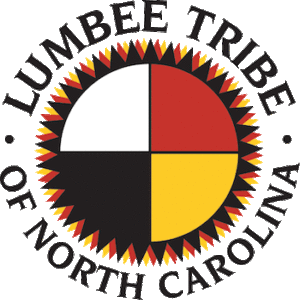
*On this date from 1725, we affirm the Lumbee Native American tribe. The Lumbee community represents the intersectionality of people from African and indigenous America. As of this writing (2017), California, South Dakota, and Tennessee were the only American states with official days honoring Native Americans.
We chose this date because 1994, the Tennessee State General Assembly established the "fourth Monday in September of each year" to be observed as "American Indian Day" and the geographic closeness to the Lumbee tribe. The Lumbee are a distinct Tri-racial Native American ethnic group in southeastern North Carolina. Numbering about 50,000, they are primarily located in Robeson County, NC. They identify as a tribe, although they are a mélange of Native, African, and European American blood, similar to groups such as the Melungeon people of the Appalachians or the Redbone of the Southeast. The Lumbee Tribe of North Carolina resides primarily in Robeson, Hoke, Cumberland, and Scotland counties. The Lumbee Tribe is the largest in North Carolina, the largest tribe east of the Mississippi River, and the ninth-largest in the nation.
The Lumbee take their name from the Lumbee River, which winds through Robeson County. Pembroke, North Carolina, is the economic, cultural, and political center of the tribe. The earliest government document showing Native communities in Drowning Creek is a map prepared by John Herbert, the white commissioner of Indian trade for the Wineau Factory on the Black River, in 1725. Herbert identified the Saraws, Pedee, Scavanos, and Wacomas as the four Siouan-speaking communities. In 1754, it was reported that there was a settlement consisting of 50 families on Drowning Creek, although there is no racial identification in that document. It states that there are no Indians in the county. Theories today speculate that the ancestors of the Lumbee were either Tuscaroras or Cheraw and related Siouan-speaking Indians who have lived there since the 1700s. In pre-American Civil War documents compiled by whites, Lumbee ancestors are consistently identified as white, Black, Mulatto, or colored. In Robeson County, they were never identified as Indian until after the Civil War.

As American Indians, the Lumbee people have been recognized by the state of North Carolina since 1885, and a separate school system was established that would benefit tribal members. In 1887, the state established the Croatan Normal Indian School, which is today The University of North Carolina at Pembroke. In 1956, the United States Congress passed a bill that recognized the Lumbee as Indian but denied the tribe the welfare benefits accorded a federally recognized Indian tribe. Full federal recognition that would bring full access to federal Indian money is currently being sought. On January 18, 1958, armed Lumbee Native Americans chased off an estimated 5,000 Klansmen and supporters led by grand wizard Catfish Cole at the town of Maxton, North Carolina.
On February 25, 2003, in the United States House of Representatives, Congressman Mike McIntyre of North Carolina introduced H.R. 898. That same day, it was referred to the Committee on House Resources. The committee requested executive comment from the Department of the Interior on March 10, 2003. The Committee on House Resources held a hearing on H.R. 898 on April 1, 2004. On February 14, 2003, United States Senate Senator Elizabeth Dole of North Carolina introduced S. 420. On that same day, it was referred to the Committee on Indian Affairs. On January 7, 2015, Rep. Richard Hudson (R-NC) introduced the Lumbee Recognition Act, marking the sixth time such a bill has been introduced in the U.S. House since 2003.
The Indian-Black Experience in North America,
Editor: Brooks, James F.
Publisher: University of Nebraska Press,
ISBN: 0803261942